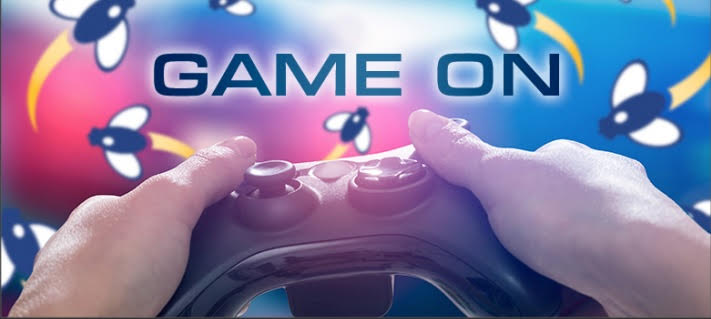

In an exclusive interview with The Fly, Glass Bottom Games founder Megan Fox discussed her upcoming skating game "Skatebird," E3, making games with Kickstarter, and more.
'SKATEBIRD': Glass Bottom's "Skatebird," a game where the player controls a skateboarding bird in a virtual skate park, garnered a lot of attention during E3 after it achieved its Kickstarter goal of $20,000 not long after launching said goal last month. The developer has also released a free demo for people to try out the game on PC. When asked about how she feels about the feedback the game has received, founder Megan Fox said that the reception has been "pretty impressive." "Usually, an indie’s not supposed to be announced during E3 because we don’t get noticed for obvious reasons," she told The Fly. "But that didn’t happen this time! So, yeah, that’s pretty impressive. As far as how I’m handling it, hopefully well? We’ve been getting a lot of press, I’ve been doing a lot of interviews, just trying not to get a swollen head about it. Just a lot of luck, really.”
E3: Game publishers have been showcasing more and more independent titles at their E3 presentations over the years, even though the main focus of the conferences is on big, AAA titles. When asked how she feels about the growing awareness of indies and whether major console makers can or should do more to highlight such games, Megan Fox said that most of the big players in the industry are "doing pretty well" on that front, noting that while Sony (SNE) is "cooling off" on its highlighting of indies, they're "still there."
"So the way these things usually work is often Sony goes really hard on indies when they’re announcing a new console and then they get a lot colder on indies as they go," she said. "Working with Sony in a lot of cases feels like you’re kind of fighting between the corporate influences and the indie-friendly influences. And the corporate influences kind of win after about year two or three. That’s not really how it works always, but you kind of see them cool off on indies after a couple of years."
“Microsoft (MSFT), this time, kind of did the opposite," she continued. "The Xbox One initially was branded as this very pro-business [console with a focus on being an all-in-one box]. It kind of missed the market and it had a weaker launch than it could have had otherwise. And they kind of pivoted quickly and actually started focusing on games, and part of that strategy was indie, and a big part of that was people like Chris Charla on their team that do amazing things with indies. And they’ve been pretty consistently pro-indie from then on.”
“Nintendo (NTDOY) previously has not done much with indies," Fox mentioned. "I just don’t think they noticed; they had other things they were focused on. But with the Switch, they’ve actually been pretty friendly to indies, which is pretty new. And that’s been the case for Switch for the last couple of years.”
KICKSTARTER: This is not the first time Fox has crowdfunded one of her games, as she also utilized crowdfunding for "Hot Tin Roof" in the past. The Fly asked whether she believes crowdfunding is a sustainable model for smaller studios, given the widening gap in budgets between small and large game makers, to which she responded, "Right now, Kickstarter is viable if you can run on a small amount of money. That doesn’t necessarily mean if you are actually a small studio or making a small game. There’s a lot of ways of reducing your burn. In my case, I live out in the country and I don’t pay myself very much because, well, I don’t need very much. Other people might have a lot of side hustles. Other people might be living in countries that have really favorable exchange rates. There’s a lot of ways of working around it. And to anyone in that situation? Kickstarter is still very useful.”
Problems occur for certain developers, she notes, when they begin to scale, as the Kickstarter model is viable when the budget for a game is below "a couple hundred thousand" dollars. "When you get above about $200,000 or $300,000, it becomes really hard to get any further," she said. "And if you actually set your funding goal to that at first, it gets really hard.” Fox noted that people may have dropped the Kickstarter model because they "got tired of it," but noted that "as a studio grows, it's going to take more money to do things." Fox added that this model, as opposed to the crowdfunding model, is "pretty risky" due to rising burn rates and less creative flexibility.
STREAMING/SUBSCRIPTION: One of the common takeaways from E3 this year was that the industry appears to be moving towards video game streaming and subscription services. Megan Fox told The Fly that she views Xbox Game Pass, Microsoft's subscription service, as a Netflix (NFLX) model of game distribution, where developers are given money upfront for access to their content, while Stadia, Google's (GOOG) upcoming game streaming service, takes on a Spotify (SPOT) model, where developers receive a percentage of revenue.
“Game Pass is a model I honestly kind of like," Fox said. "So if we’re going to go into a streaming reality, as it were, of the two the Netflix model is far more survivable for independent creators than the Spotify model. The Spotify model will do to games what it did to music: it will make it very difficult to survive. Survival will be not because of Spotify, but because of your independent sales.”
“Netflix model is not great, but it’s also not likely to gut the market in the same way," she continued. "Right now, the Netflix model exists alongside direct sales, it exists alongside other avenues that work okay. It just also adds survivable revenue. It’s hard to survive the Netflix model, though, if you’re in the mid-tier.”
Fox said she believes that the Stadia model is "actively corrosive," though she added that if Google approaches her with "a big bag of money," she would probably agree to put her games on the service. The developer also told The Fly that she is currently talking to Microsoft, but she didn't know what deal or if any deal will come of those talks. “Nothing has been confirmed, I don’t know yet if there is a deal, I just wanted to say that," she commented.
SWITCH: When asked if she intends to put any of her games on the Nintendo Switch, Fox expressed interest in the idea, though there aren't yet any official plans. “Hard plans, no. Desire, yes," she said. "We are currently in talks with all of the platforms, and one of them in particular is kind of being slow to respond. But we think a deal might congeal, so we don’t want to wrong-foot them, so we’re trying to hold off on saying anything until we hear back.”
"Game On" is The Fly's weekly recap of the stories powering up or beating down video game stocks.
